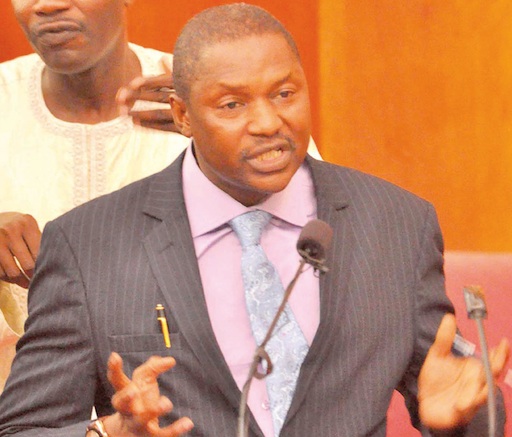•Say it abdicates central govt’s financial obligation to judiciary
The 36 states of the federation have gone before the Supreme Court to challenge the Presidential Executive Order No. 00-10 of 2020 signed in May by President Muhammadu Buhari on the funding of the courts.
Buhari had signed the executive order to enforce the financial autonomy of the legislature and the judiciary at the state level.
The Attorney General of the Federation and Minister of Justice, Mr. Abubakar Malami (SAN), had clarified that the president signed the order based on the power vested in him as the president under “Section 5 of the Constitution of the Federal Republic of Nigeria 1999 (as Amended), which extends to the execution and maintenance of the Constitution, laws made by the National Assembly (including but not limited to Section 121(3) of the 1999 Constitution (as Amended), which guarantee financial autonomy of the State.”
According to the AGF, the order provides that: “The Accountant-General of the Federation shall by this Order and such any other Orders, Regulations or Guidelines as may be issued by the Attorney-General of the Federation and Minister of Justice, authorise the deduction from the source in the course of Federation Accounts Allocation from the money allocated to any State of the Federation that fails to release allocation meant for the state legislature and state judiciary in line with the financial autonomy guaranteed by Section 121(3) of the Constitution of the Federal Republic of Nigeria 1999 (as Amended).”
But the 36 states, who filed the suit through their respective attorneys general, are seeking an order of the Supreme Court quashing the order for being unconstitutional.
The sole respondent in the suit is the Attorney General of the Federation, Malami.
In the suit filed on their behalf by nine Senior Advocates of Nigeria (SANs), led by a former president of the Nigerian Bar Association, Mr. Augustine Alegeh (SAN), and six other lawyers, the 36 states explained that Buhari, by virtue of the order he signed on May 20, 2020, had pushed the federal government’s responsibility of funding both the capital and recurrent expenditures of the state high courts, Sharia Court of Appeal, and the Customary Court of Appeal, to the state governments.
They contended that the order was a clear violation of sections 6 and 8(3) of 1999 Constitution, which make it the responsibility of the federal government to fund the listed courts.
The 36 states, which said they had been funding the capital projects in the listed courts since 2009, are also praying the Supreme Court to order the federal government to make a refund to them.
“Since the 5th of May 2009, the defendant had not funded the capital and recurrent expenditures of the state high courts, Sharia Court of Appeal and the Customary Court of Appeal of the plaintiffs’ states, apart from paying only the salaries of the judicial officers of the said courts.
“The plaintiffs’ states have been solely responsible for funding the capital and recurrent expenditures of the state high courts, Sharia Court of Appeal and the Customary Court of Appeal of the plaintiffs’ states, which the defendant has failed and/or refused to fund,” they said.



